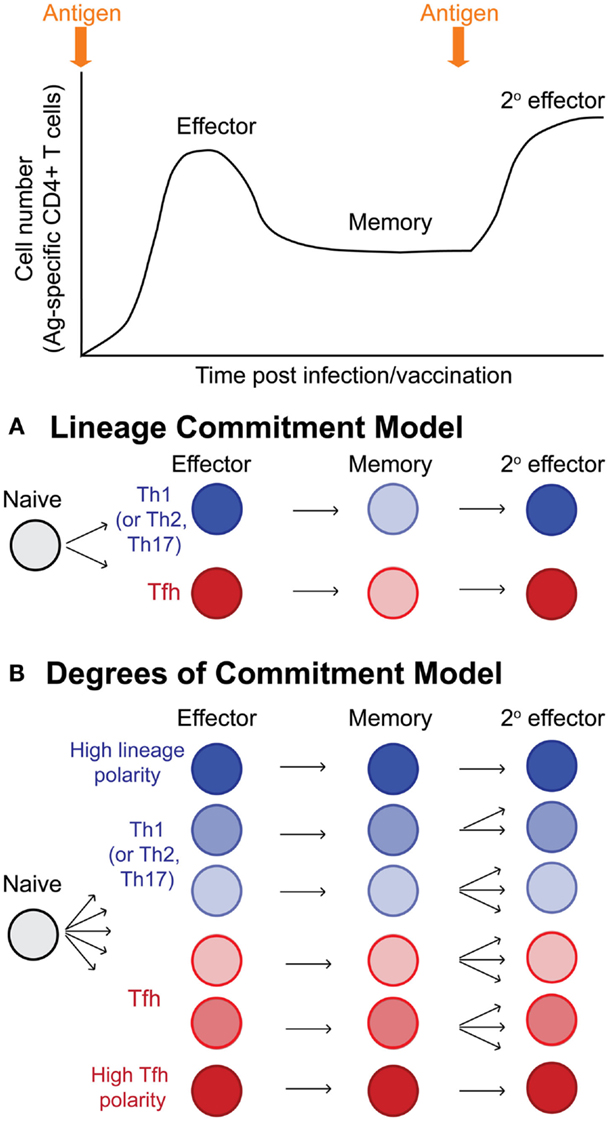Genetic Medicine Careers: Exploring Professional Paths at the Intersection of DNA Technology and Healthcare
Genetic medicine careers: where DNA technology meet healthcare
The convergence of DNA technology and medicine has created a dynamic field with diverse career opportunities for those fascinate by both genetics and healthcare. Professionals in this interdisciplinary space apply cutting edge genetic techniques to diagnose, treat, and prevent diseases, basically transform modern medicine.
Understand genetic medicine
Genetic medicine represent the application of DNA technology and genomic information to healthcare practices. This field has evolved dramatically since the completion of the human genome project, which provide the foundation for understand how genetic variations influence health and disease.
The core principle of genetic medicine is that many health conditions have genetic components that can be identified, analyze, and potentially modify. By understand these genetic factors, healthcare professionals can develop personalized treatment approaches tailor to individual patients.
Key career paths in genetic medicine
Medical geneticist
Medical geneticists are physicians who specialize in diagnose and manage genetic disorders. After complete medical school, these specialists undergo additional training in genetics to develop expertise in:
- Diagnose rare genetic conditions
- Provide genetic counseling to patients and families
- Order and interpret genetic tests
- Develop treatment plans for genetic disorders
- Conduct research on genetic diseases
Medical geneticists oftentimes work in academic medical centers, children’s hospitals, and specialized genetics clinics. Their expertise is peculiarly valuable for patients with suspect hereditary conditions or families with histories of genetic disorders.
Genetic counselor
Genetic counselors bridge the gap between complex genetic information and patient understanding. These professionals hold master’s degrees in genetic counseling and work intimately with individuals and families to:
- Assess genetic risk factors
- Explain genetic testing options and results
- Provide emotional support and resources
- Help patients make informed decisions about genetic testing
- Navigate the ethical implications of genetic information
The demand for genetic counselors continue to grow as genetic testing become more commonplace in healthcare settings. These professionals work in prenatal clinics, cancer centers, pediatric hospitals, and private practices.
Molecular geneticist
Molecular geneticists focus on the laboratory aspects of genetic medicine. With backgrounds typically in biology, genetics, or molecular biology, these scientists:
- Develop and perform genetic tests
- Analyze DNA sequences and genetic variants
- Interpret complex genetic data
- Research new genetic testing methodologies
- Investigate the molecular basis of diseases
Molecular geneticists work in diagnostic laboratories, biotechnology companies, pharmaceutical firms, and research institutions. Their expertise is essential for translate genetic discoveries into clinical applications.
Genomic data scientist
The explosion of genetic data has created demand for specialists who can analyze and interpret vast genomic datasets. Genomic data scientists combine expertise in:
- Bioinformatics
- Computer programming
- Statistical analysis
- Genetics and molecular biology
- Machine learning and artificial intelligence
These professionals develop algorithms to identify patterns in genetic data, predict disease risk, and discover potential therapeutic targets. They work for biotechnology companies, pharmaceutical research teams, academic institutions, and healthcare systems.
Pharmacogenomics specialist
Pharmacogenomics examine how genetic variations affect individual responses to medications. Specialists in this field:
- Study gene drug interactions
- Develop genetic tests to predict drug responses
- Help physicians select optimal medications and dosages
- Research new approaches to personalized medicine
- Contribute to drug development processes
Pharmacogenomics specialists typically work in pharmaceutical companies, clinical laboratories, research institutions, and hospitals. Their work help minimize adverse drug reactions and maximize treatment effectiveness.
Gene therapy researcher
Gene therapy represent one of the virtually promising applications of DNA technology in medicine. Researchers in this field:
- Develop methods to deliver therapeutic genes to patients
- Design gene edit technologies like CRISPR cas9
- Conduct preclinical and clinical trials
- Address safety and ethical concerns
- Translate laboratory findings into clinical treatments
Gene therapy researchers work principally in academic institutions, biotechnology companies, and pharmaceutical firms. This career require advanced scientific training, typically at the doctoral level.
Clinical laboratory geneticist
Clinical laboratory geneticists direct genetic testing laboratories. These professionals:
- Oversee laboratory operations
- Ensure quality control in genetic testing
- Develop new testing protocols
- Interpret complex genetic test results
- Consult with physicians about genetic findings
Clinical laboratory geneticists typically hold doctoral degrees (pPhD mMD or both )and certification from the amAmericanoard of medical genetics and genomics. They work in hospital laboratories, reference laboratories, and academic medical centers.
Educational pathways
Undergraduate preparation
Students interested in genetic medicine careers should pursue bachelor’s degrees in relevant fields such as:
- Genetics
- Molecular biology
- Biochemistry
- Biotechnology
- Bioinformatics
Coursework should include genetics, cell biology, biochemistry, statistics, and computer science. Research experience is extremely valuable, as is exposure to clinical settings for those interested in patient face roles.

Source: lihpao.com
Graduate and professional education
Career paths in genetic medicine typically require advanced degrees:
- Medical geneticist: Md or do degree, follow by residency and fellowship training in medical genetics
- Genetic counselor: Master’s degree in genetic counseling from an accredited program
- Molecular geneticist: PhD in genetics, molecular biology, or related field
- Genomic data scientist: Master’s or PhD in bioinformatics, computational biology, or related field
- Pharmacogenomics specialist: Pharma, PhD, or MD with specialized training
- Gene therapy researcher: PhD in genetics, molecular biology, or biomedical sciences
- Clinical laboratory geneticist: PhD, MD, or combine MD / PhD with laboratory fellowship training
Certifications and licensure
Many genetic medicine careers require professional certification:
- Medical geneticists seek board certification from the American board of medical genetics and genomics
- Genetic counselors obtain certification from the American board of genetic counseling
- Clinical laboratory directors need certification from the American board of medical genetics and genomics or the American board of clinical chemistry
State licensure requirements vary by profession and location. Continue education is essential in this chop chop evolve field.
The future of genetic medicine careers
Emerge opportunities
Several trends are created new career opportunities at the intersection ofDNAa technology and medicine:
- Direct to consumer genetic testing: Create roles in consumer education, test development, and result interpretation
- Precision oncology: Expand careers in cancer genomics and target therapy development
- Prenatal and reproductive genetics: Grow demand for specialists in preimplantation genetic testing and non-invasive prenatal screening
- Population genomics: Increase need for experts who can analyze large scale genomic datasets
- Epigenetics: Open new avenues for understand how environmental factors influence gene expression
Technological advancements
Innovations in DNA technology continue to transform genetic medicine careers:
- Next generation sequencing: Make whole genome analysis degenerate and more affordable
- CRISPR and gene editing: Create new therapeutic possibilities and research directions
- Single cell genomics: Enable more precise analysis of cellular heterogeneity
- Liquid biopsy: Allow non-invasive detection of genetic biomarkers
- Artificial intelligence: Enhance the interpretation of complex genetic data
Professionals who will stay current with these technologies will find themselves at the forefront of medical innovation.
Skills for success in genetic medicine
Technical competencies
Success in genetic medicine careers require mastery of specific technical skills:

Source: scuhs.edu
- Understanding of molecular genetics and genomics
- Proficiency in laboratory techniques and instrumentation
- Familiarity with genetic testing methodologies
- Data analysis and interpretation capabilities
- Knowledge of bioinformatics tools and resources
Soft skills
Evenly important are interpersonal and professional qualities:
- Communication: Ability to explain complex genetic concepts to diverse audiences
- Empathy: Sensitivity when discuss genetic information that impact patients’ lives
- Ethical awareness: Understanding of privacy concerns and ethical implications
- Adaptability: Willingness to endlessly learn as the field evolve
- Collaboration: Capacity to work efficaciously in multidisciplinary teams
Challenges and rewards
Professional challenges
Genetic medicine professionals face unique challenges:
- Keep pace with quickly advance technology and knowledge
- Navigate complex ethical questions about genetic testing and modification
- Communicate uncertain or probabilistic genetic information
- Address disparities in access to genetic services
- Manage emotional aspects of genetic diagnoses
Career rewards
Despite these challenges, careers in genetic medicine offer significant rewards:
- Intellectual stimulation from work at the cutting edge of science
- Satisfaction from help patients understand their genetic health
- Contribution to medical breakthroughs and therapeutic advances
- Competitive salaries and strong job prospects
- Opportunities for specialization and career growth
Getting start in genetic medicine
Entry points
For those interested in genetic medicine careers, several entry points exist:
- Laboratory technician positions in genetic testing facilities
- Research assistant roles in genomics laboratories
- Clinical coordinator positions in genetic counseling departments
- Bioinformatics analyst roles in healthcare or research settings
- Graduate programs in genetics, genomics, or genetic counseling
Networking and professional development
Professional connections are invaluable in genetic medicine. Consider:
- Join organizations like the American society of human genetics or the national society of genetic counselors
- Attend conferences focus on genetics and genomic medicine
- Participate in online forums and discussion groups
- Seek mentorship from established professionals
- Contribute to research publications or community education efforts
Conclusion
Careers at the intersection of DNA technology and medicine offer exceptional opportunities to make meaningful contributions to healthcare. Whether work direct with patients, conduct laboratory research, analyze genetic data, or develop new therapies, professionals in this field help translate genetic discoveries into improve health outcomes.
The rapid pace of innovation in genetic medicine will ensure that these careers will continue to will evolve, will create new roles and opportunities for those with the right combination of scientific knowledge, technical skills, and personal qualities. For individuals passionate about both genetics and healthcare, few career paths offer such exciting potential to transform the future of medicine.
MORE FROM grabscholarships.de













